In this post we'll cover:
What is a Marketing Writer?
A marketing writer is responsible for creating marketing assets for a business, such as ads, website copy, blogs, emails, brochures, lead magnets, flyers, ebooks, white papers and more.
Marketing is all about effective communication and it’s a marketing writer’s job to help a business forge a connection with their audience to turn them into customers.
Most businesses opt to have their marketing communications written by professional marketing writers, otherwise known as copywriters, specialists in their field.
It’s a marketing writer’s job to create the content that generates trust and belief in a brand.
“Content builds relationships. Relationships are built on trust. Trust drives revenue.”
To be effective as a marketing writer, you must understand your audience, know how to connect with them and how to persuade them to take the desired action.
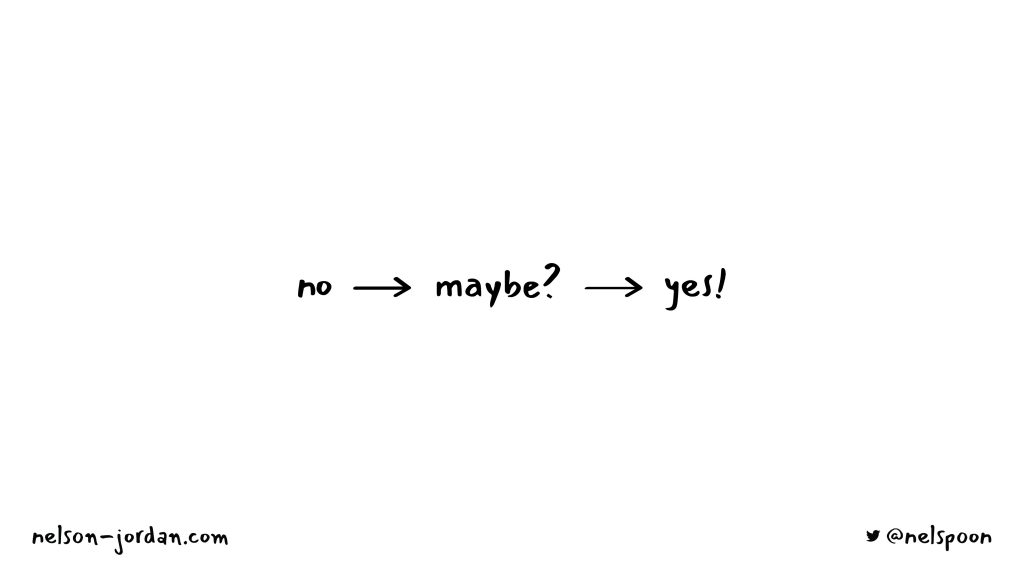
What do marketing writers do?
Marketing writers are commissioned by businesses to help generate leads, boost brand awareness, and increase their social media presence via marketing campaigns. They work either freelance, for an agency or full-time as part of an internal marketing team.
Marketing writers aim to engage, impact, and eventually convert target audiences with written content.
As simple as it sounds, the job of a marketing writer is certainly not an easy one. They wear many hats and perform a variety of tasks, which include:
- Writing effective content. Marketing writers must create audience-focused content such as web copy, blogs, articles, ads, lead magnets, white papers, and email newsletters which promote the business and help develop better consumer-brand relationships. They deliver clear and concise messages and also create engaging content to build a brand’s authority in the market.
- Researching – Marketing writers conduct extensive research to evaluate topics, keywords and offers. They also define target audiences, analyze the market and competitors in order to build a high-performance content strategy.
- Managing projects – They generate topic ideas, write, edit and work with other content creators (content strategists, editors, graphic designers, content managers, etc.) to get pieces ready to publish.
- Planning and executing marketing campaigns – Marketing writers may also get involved in other marketing campaigns such as content marketing and ad campaigns to help boost business growth.
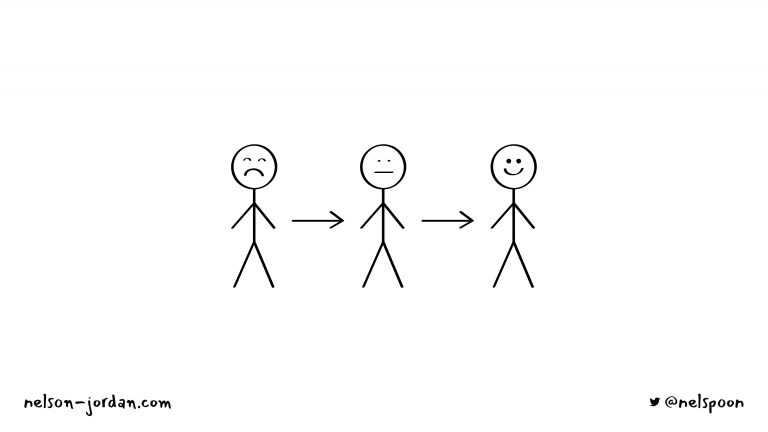
What skills do marketing writers need?
It’s a diverse role, so let’s take a look at the different skills marketing writers need to succeed.
Content Creation Skills
Marketing writers should be skilled content creators and copywriters. They have a deep understanding of what works with the audience and use this skill to move their prospects through the marketing funnel.
They should understand different content formats and possess the knowledge required to create all forms of content across a range of different mediums.
Let’s take a look at the old copy from Medium’s ‘Our Story’ page (since updated.)
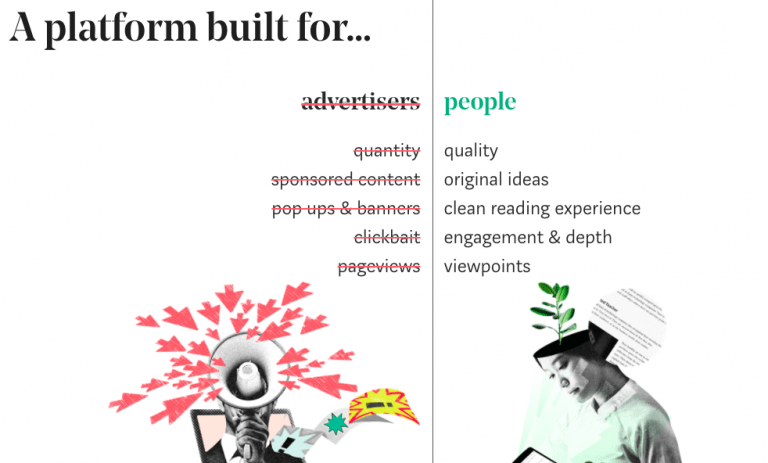
It does a great job of communicating exactly what their brand stands for. In less than five seconds, a reader can understand that Medium seeks to put people over advertisers and original in-depth content over surface-level clickbait.
Research Skills
It surprises a lot of people to hear that the skill that sets apart a stellar copywriter from a good one isn’t actually writing, it’s research.
If you know the customer better than the competition, you stand a good chance of outperforming them when it comes to marketing your brand. As a marketing writer, you’ll need to establish a thorough research process that allows you to understand your audience’s key pain points, where to find them, the type of content they like and what tactics are working well at the current time.
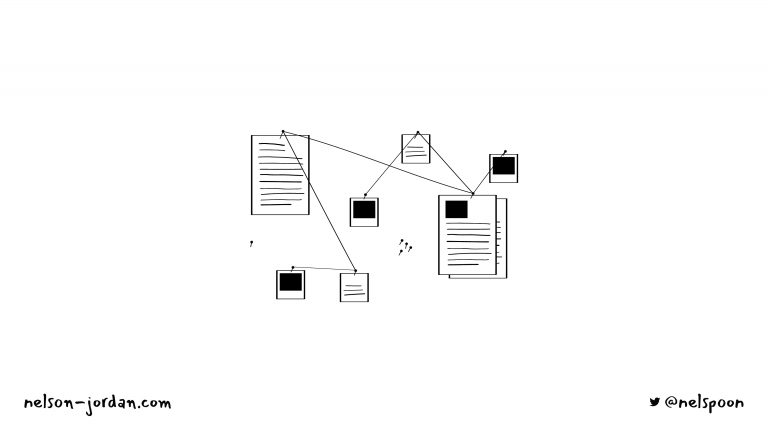
Marketing Strategy
Marketing writers should possess the skill to understand the place that content plays in marketing. While they certainly don’t need to know how to plan targeted digital marketing campaigns across all marketing channels, a knowledge of the wider marketing funnel certainly helps.
They should have greater knowledge of particular areas that crop up frequently, for example creating ads, blogs, web copy and email copy.
A marketing writer has created the landing page, lead magnet and follow-up email flow for this example from email automation and outreach tool, Mailshake:
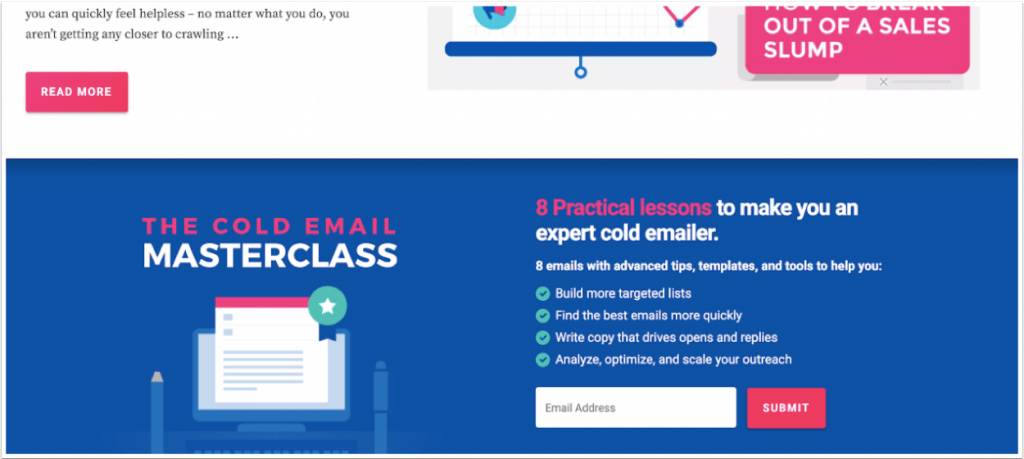
How can you improve as a marketing writer?
7 tips to become an expert:
Writing compelling conversion-oriented copy and engaging blog content is a skill unto itself and one that takes years to master.
Producing engaging content is a problem for many businesses, but it will remain a top focus as 65% of companies list generating traffic and leads as their top marketing challenges.
Put simply, creating effective copy that engages and converts customers is hard to do.
So here are a few tips that will help you take your marketing writing to the next level.
Know what your audience wants
Many businesses create content that nobody wants. What a waste of time, money and effort! The main reason is a lack of research and an internal rather than external focus.
Nobody cares what your company does. They only care what your company can do for them.
Your audience should be at the heart of everything you write. Next time you sit down to create your next marketing asset, think ‘why would my audience care about this?’ If you can’t answer, you shouldn’t be writing.
Here’s marketing coach, Andrea Fryrear, on creating content:
‘Our job is not to create content. Our job is to change the world of the people who consume it.’
Take a look at one of Buffer’s blog posts:
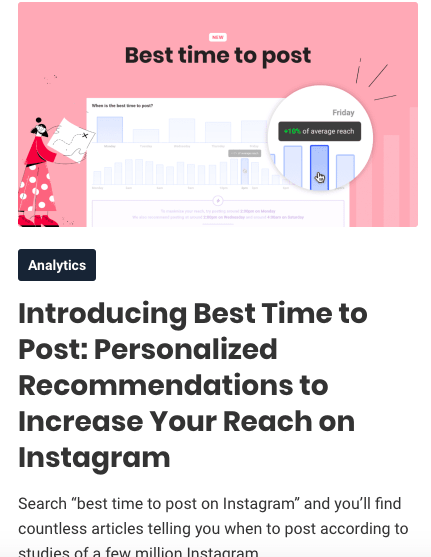
It answers a question every social media marketer has asked (or been asked) – when is the best time to post? It’s focused on the audience, not their business.
Get engaging
If you want to get noticed, you’ve got to stand out. Grab attention on your ads and web copy by using impactful words and interesting angles.
Look at the language used in Basecamp’s sub-header: ‘scattered’ and ‘stressed.’

I guarantee they’ll have completed audience research that tells them those are the emotions their prospects are feeling when they’re looking for a solution.
It gives the visitor the instant feeling that this brand understands what it feels like to be in their shoes and they’re more likely to buy as a result.
But not all great writing has to be long-form. Here’s a story in three words from cough-drop manufacturer, Ricola.

And here’s MobileMonkey, using the competitor angle to persuade companies: ‘Get ahead of 99% of businesses.’

Spend longer on your headlines
As David Ogilvy said:
"On average, five times as many people read the headline as read the body copy. When you have written your headline, you have spent eighty cents out of your dollar."
Your headline should catch readers’ attention and make them want to carry on reading.
There’s no perfect recipe to creating a headline that ignites a flame of curiosity within your reader, but a simple question you can ask yourself is ‘would I click on this?’
If not, then your job’s not done!
Copyhackers use their headline scorecard to evaluate their headlines. Next time you’re writing a headline, ask yourself these five questions:
Does it match visitor expectations?
Does it grab visitor attention?
Is it clearly communicated in easy-to-understand language?
Does it get to the visitor’s point?
Does it highlight something beneficial or valuable for your prospect?
Here are a few headlines to inspire you:
From SmartBlogger: ‘A Cheat Sheet For Becoming A Freelance Writer’

From Smart Passive Income: ‘Build Your Dream Online Business’

And a simple one from CXL: ‘Grow Faster.’
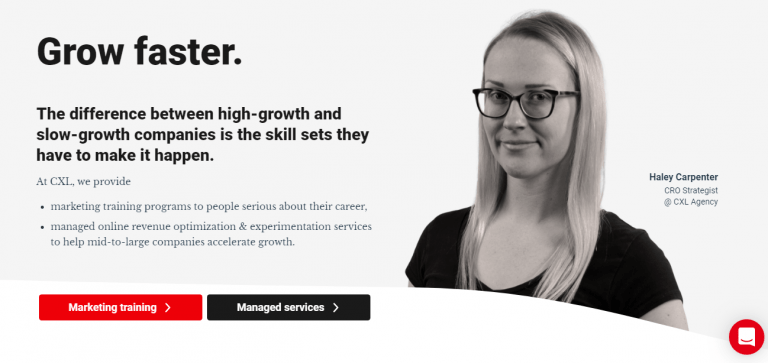
Create thought-provoking content
You need to write content with the aim of engaging your readers. Otherwise, what’s the point?
The more captivated your audience are by your content, the more likely they are to come back for more and buy from you.
Engaging content encourages a dialogue between your business and your audience which leads to a stronger consumer-brand relationship.
You can create insightful content that helps your reader, changes their perspective or piques their interest.
Let’s take a look at Marie Forleo’s blog:
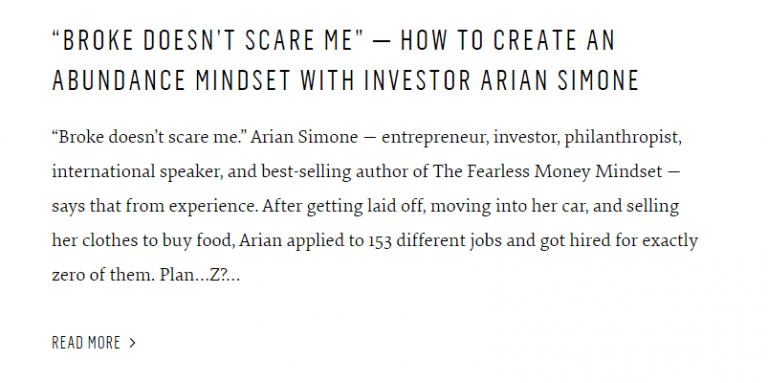
I don’t know about you, but I’m going to hit that ‘Read More’ button every day of the week.
Make your content actionable
I’ve said it before and I’ll say it again. No-one cares about your business. They only care about themself.
So if your content isn’t actionable, chances are you’ve created a dud.
Create useful content that gives readers practical solutions to their problems. Giving them information isn’t enough, show them what to do with it.
Here’s an example of actionable content from Wistia:

Make your longer content scannable
Many people skim through blog posts and newsletters. You shouldn’t expect that everyone will read every word you write. When I click on a blog, I skim through to make sure it has what I need and if it does, I’ll start again from the top.
Making your content scannable is mainly to do with formatting. Here’s how you do it:
- Use sub-headers throughout.
- Break up your paragraphs after every few sentences.
- Include a ‘Table of Contents’ so visitors can navigate easily.
- Use images, graphics and GIFs to support your points.
- Use numbered lists and bullet points.
Optimize it for Search Engines
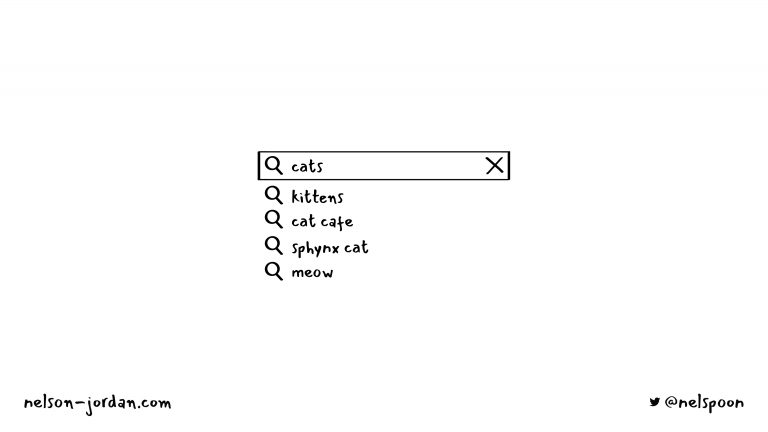
If you create online content, you need to know at least the basics of SEO. I find that one of the things that sets me apart from other marketing writers is that I worked as an SEO manager, helping companies to build their organic traffic.
Did you know that 60% of marketers say that inbound (SEO) is their highest quality source of leads? And leads from SEO have a 14.6% close rate.
If you write online content (particularly blog content) you need to understand how SEO works. No content marketing strategy is complete without keyword research.
Quite simply, in a competitive environment, your website will struggle to rank for the best keywords without Search Engine Optimization.
Looking to hire a marketing writer?
If you’re seeking a marketing writer to help grow your business, contact me to see if we’d be a good fit.
